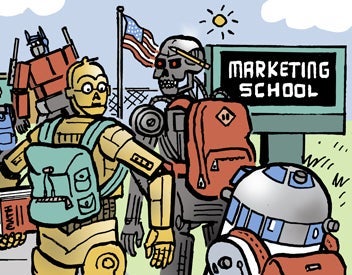There is hope for recovery in 2003, but only if companies step up and start reinvesting.
Business investment has sagged from $69 million in early 2000 to around $57 billion at end of 2002, and consumer ability to prop up what it can of the economy is flagging, according to Mark M. Zandi, chief economist and co-founder of Economy.com.
“We are in a transition from consumer- to business-led growth” said Zandi, speaking at the National Center for Database Marketing conference. “Consumers will become more circumspect. We need to see businesses expand. If that transition doesn’t go well, we will be back in a recession.”
The keys to recovery are resilient productivity growth, which either boosts corporate profits (and therefore investment) or consumer salary growth. Also critical are a federal fiscal policy geared toward stimulation, and low interest rates. All of these are in place, according to Zandi.
Zandi feels the potential war in Iraq presents the strongest obstacle to recovery. If it is quick and successful within the first half of 2003, its impact on the economy will be a blip. But a sustained campaign combined with a spike in oil prices could easily throw the U.S. economy back into a slump. Every recession since 1929, with the exception of 1961, has been preceded by an oil cost increase, Zandi noted.
Some business sectors have proven resilient to the downturn. According to Zandi, the healthcare industry is hiring, and the children of the baby boomers are creating a demand for educational services.
In fact, industries like automotive, financial products and housing may be seeing their best days right now because of low interest rates. But these segments may falter when the economy turns and interest rates are increased.
 Network
Network


